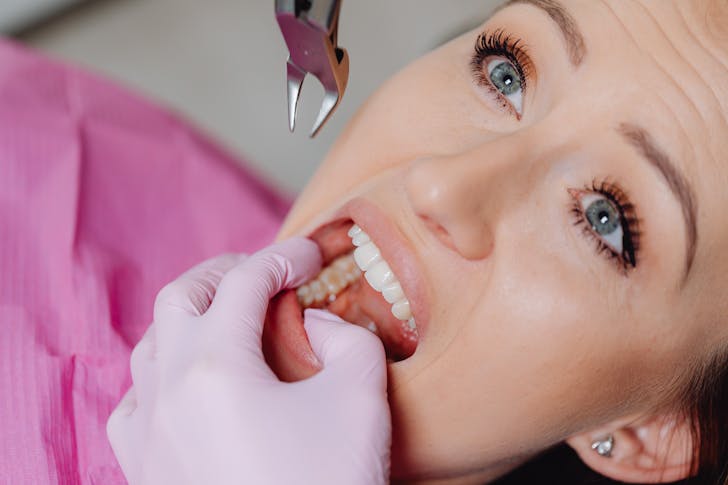Why does your tooth hurt when you bite down? It is frustrating, isn’t it? That sudden jolt of pain can turn every bite into a guessing game. The good news is that understanding the reasons behind the pain is the first step to fixing it. Tooth pain when biting is often a sign of an underlying issue, such as a crack, decay, or a loose filling.
Now, let’s go ahead and explore what might be causing your discomfort and what you can do to find relief.
Why Does Your Tooth Hurt When You Bite Down?
A crack in your tooth could be the answer to why your tooth hurts when you bite down. Cracks can form when you bite on something hard – like a popcorn kernel – or when a tooth already has a large filling. These hairline fractures might not seem like a big deal at first, but over time, they can worsen.

However, what makes it tricky is that the pain can come and go depending on the position of the crack. Ignoring it only makes the problem worse. So, it is crucial to see a dentist as soon as you notice the discomfort.
Tooth Decay Can be an Issue
Tooth decay is another common cause of pain when biting. When decay sets in, it eats away at the enamel, leaving your tooth weak and vulnerable. This weakness makes it easier for the tooth to break under pressure, which could explain why your tooth hurts when you bite down.
The pain might start as mild sensitivity but can quickly escalate if the decay is not treated. Cavities that are not addressed in time can spread, eventually reaching the nerve and causing severe pain.
Loose Fillings
Sometimes, the issue lies in old dental work. A filling that has become loose or dislodged can expose sensitive parts of your tooth, making every bite feel like a sharp jab. If you have been wondering why your tooth hurts when you bite down, and you have a filling, this could be the answer.
So, without immediate care, the exposed area is at risk of further damage, like infection or increased decay.
What to Do When Tooth Pain Strikes?

Tooth pain when biting down is not something to ignore. You might think it is just a passing issue, but delaying a visit to the dentist could worsen the problem. Whether the pain comes from a crack, decay, or a loose filling, your dentist has the tools and expertise to fix it.
When you visit your dentist, they will start with an examination and might take X-rays to pinpoint the cause. Once they identify the issue, they will recommend the best treatment. Be it sealing a crack, filling a cavity, or replacing an old filling. Early intervention prevents the problem from escalating, sparing you from more pain and costly procedures later on.
Make Sure to Act Fast!
Ignoring tooth pain is tempting, especially if it is not constant. But the longer you wait, the higher the chance of damaging the dental pulp–the soft tissue inside your tooth. Damaged pulp can lead to infections or even the need for a root canal, which is not something you want to deal with.
If the pulp is beyond repair, your dentist may refer you to an endodontist, a specialist in saving damaged teeth. Acting quickly ensures you address the issue before it becomes a bigger, more painful problem.
